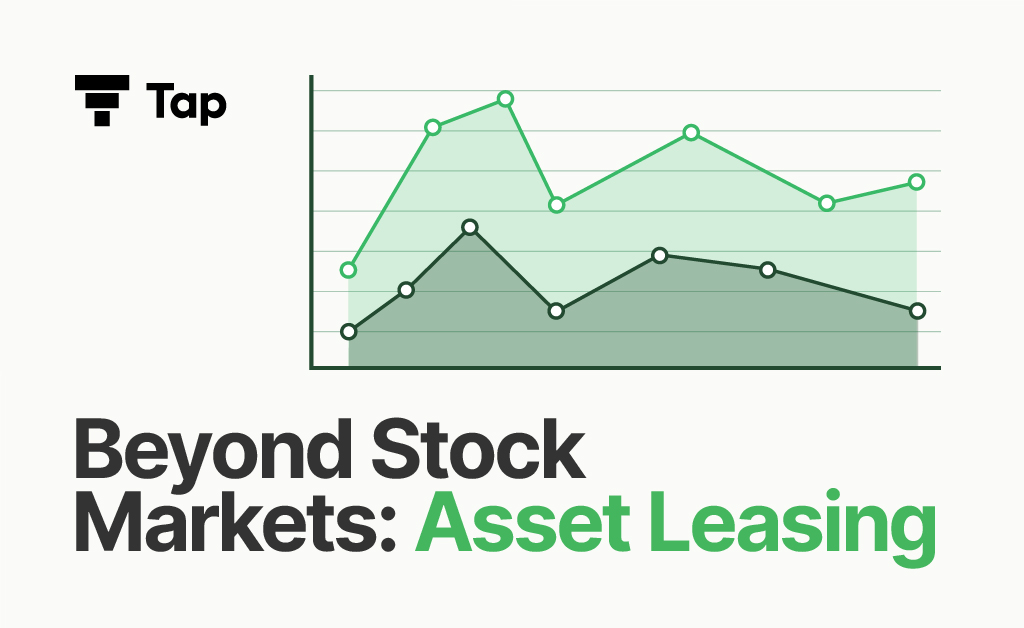Beyond Stock Market: Asset Leasing

India’s investment landscape is evolving. Since COVID-19, there has been a massive jump in active investors, and domestic investments are dominating the markets. While the stock market remains a cornerstone, increasingly savvy investors are venturing beyond its boundaries, seeking diversification and alternative avenues for their wealth to grow. Alternative investments encompass a broad spectrum, ranging from private equity and hedge funds to tangible assets like commodities and infrastructure. This surge in diversification and stepping away from the conventional paths has helped gain traction into opportunities like asset leasing.
Understanding Asset Leasing Investment:
Asset leasing involves acquiring and leasing assets to businesses, such as machinery, equipment, or vehicles. Unlike traditional investments, Asset Leasing offers a steady income stream to investors through lease payments, providing them with a fixed-income cash flow model. This strategy especially appeals to those seeking stable returns outside the volatility often associated with traditional markets.
There are multiple ways in which Asset Leasing helps investors get the desired returns. Let us take the example of the model followed by Tap Invest. In this model, investors invest their funds against assets required by a specific company. The investor holds ownership of these assets for a fixed tenure post, after which they get a promised sum. During this tenure, the investor receives a fixed payout, which includes interest and part of their investment.
Asset leasing can be a compelling alternative investment, and achieving returns in the 20% range is possible under favorable circumstances. Investing in assets related to industries experiencing growth and stability can enhance returns. Specific sectors may offer higher demand for leased assets, translating into better returns for lessors. Depreciation and potential tax credits can positively impact the after-tax return for lessors.
While not a new concept, its appeal is gaining traction for several reasons:
Stable Cash Flow: Lease agreements generate predictable income streams, offering a potential cushion against unpredictable markets.
Tax Advantages: The ownership of and depreciation of leased assets can offer tax benefits, further enhancing your financial position.
Internal Rate of Return (IRR) as a Metric:
When evaluating the potential returns of an investment, investors often turn to metrics such as Internal Rate of Return (IRR). IRR represents the annualized rate of return an investor can expect to receive on an investment over a specified period. In the context of Asset Leasing, IRR becomes a crucial tool for assessing the profitability and attractiveness of a leasing opportunity.
This metric provides a comprehensive view of the investment’s profitability, factoring in the time value of money. The higher the IRR, the more lucrative the investment is considered.
Risks Associated with Asset Leasing Investment:
Hold on, we’re not selling a fairy tale here. Asset Leasing has its own set of risks. Market fluctuations, technological obsolescence, and economic downturns can impact the demand for leased assets. Additionally, the creditworthiness of lessees poses a risk, as defaults can affect the expected cash flows. A thorough risk assessment is crucial for investors considering Asset Leasing to make informed decisions and implement risk mitigation strategies.
In conclusion, how people invest their money changes, and new choices are becoming more popular. Asset Leasing is one of these exciting options. It is a good pick because it gives you stability, variety, and a unique way to earn money regularly. Like any investment, knowing the risks and doing your homework is essential. If you add Asset Leasing to your investments, you might discover an intelligent way to reach your money goals in this always-changing investment world.
Head on to Tap Invest to start your asset leasing investment journey today.
Key FAQs On Asset Leasing Investment:
- What is leasing of assets?
Leasing is a financing agreement where a lessor (owner) rents an asset (equipment, vehicle, etc.) to a lessee (user) for a fixed price over a set term.
Lessees benefit from lower upfront costs, predictable payments, and access to new equipment.
Lessors enjoy steady income, tax advantages, and potential asset recovery.
- Is asset leasing safe?
Asset leasing can be safe if managed properly, but it carries risks like lessee default and asset depreciation. Conduct thorough due diligence, choose reliable lessees, and consider professional management to mitigate these risks.
- Can asset leasing generate better returns for investors?
Asset leasing has the potential to generate better returns for investors due to steady income from lease payments and the possibility of capital appreciation. However, it also carries risks such as lessee default and asset depreciation, so thorough due diligence and risk management are essential for maximizing returns.
